Filter by

Nanomaterials and Nanoarchitectures
The current work consists of nine contributions describing recent progress in the interdisciplinary of Nanoscience, which involves physics, chemistry, engineering, biology and medicine and one essay outlining some important historical and socioeconomic factors pertaining to recent developments in nanoscale science and technology. All 10 chapters have been written by eminent experts in their …
- Edition
- 1
- ISBN/ISSN
- 1874-6519
- Collation
- XIV, 343
- Series Title
- NATO Science for Peace and Security Series C: Environmental Security
- Call Number
- -

Nanocomposites, Nanophotonics, Nanobiotechnology, and Applications
This book presents some of the latest achievements in nanotechnology and nanomaterials from leading researchers in Ukraine, Europe, and beyond. It features contributions from participants in the 2nd International Summer School “Nanotechnology: From Fundamental Research to Innovations” and International Research and Practice Conference “Nanotechnology and Nanomaterials”, NANO-2013, which…
- Edition
- 1
- ISBN/ISSN
- 0930-8989
- Collation
- XX, 403
- Series Title
- Springer Proceedings in Physics
- Call Number
- -

Modified Au-Based Nanomaterials Studied by Surface Plasmon Resonance Spectros…
This work pursues a novel route to functionalizing large surfaces with hybrid nanoparticles. It also casts new light on the combined use of surface plasmon resonance and X-rays. SPR spectroscopy is employed to study Au-based plasmonic nanostructures fabricated by novel methods, and a new experimental device is developed combining SPR with X-ray absorption spectroscopy at a synchrotron beamline.…
- Edition
- 1
- ISBN/ISSN
- 978-3-319-37016-3
- Collation
- XIX, 183
- Series Title
- Springer Theses
- Call Number
- -

Modern Cold Spray:Materials, Process, and Applications
This book focuses on the current state of the art of the novel cold spray process. Cold spray is a solid state metal consolidation process, which allows engineers to tailor surface and shape properties by optimizing process parameters, powder characteristics and substrate conditions for a wide variety of applications that are difficult or impossible by other techniques. Readers will benefit fro…
- Edition
- 1
- ISBN/ISSN
- 978-3-319-16771-8
- Collation
- X, 429
- Series Title
- -
- Call Number
- -

Electrochemically Engineered Nanoporous Materials Methods, Properties and Ap…
This book provides in-depth knowledge about the fabrications, structures, properties and applications of three outstanding electrochemically engineered nanoporous materials including porous silicon, nanoporous alumina and nanotubular titania. The book integrates three major themes describing these materials. The first theme is on porous silicon reviewing the methods for preparation by electroch…
- Edition
- 1
- ISBN/ISSN
- 978-3-319-20346-1
- Collation
- 94 b/w illustrations, 50 illustrations in colour
- Series Title
- -
- Call Number
- -
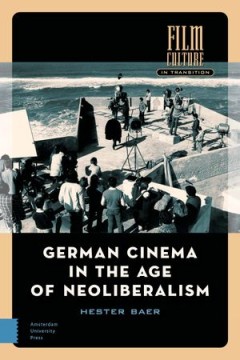
German Cinema in the Age of Neoliberalism
This book presents a new history of German film from 1980-2010, a period that witnessed rapid transformations, including intensified globalization, a restructured world economy, geopolitical realignment, and technological change, all of which have affected cinema in fundamental ways. Rethinking the conventional periodization of German film history, Baer posits 1980-rather than 1989-as a crucial…
- Edition
- -
- ISBN/ISSN
- 9789048551958
- Collation
- -
- Series Title
- -
- Call Number
- -
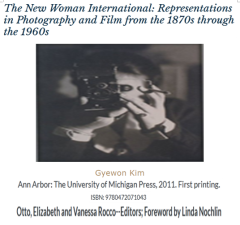
The New Woman International, Representations in Photography and Film from the…
Images of flappers, garçonnes, Modern Girls, neue Frauen, and trampky—all embodiments of the dashing New Woman—symbolized an expanded public role for women
- Edition
- -
- ISBN/ISSN
- 9780472900367
- Collation
- -
- Series Title
- -
- Call Number
- T 791.4309 OTT n c
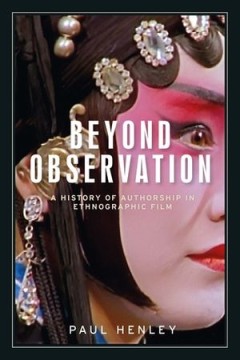
Beyond observation A history of authorship in ethnographic film
Beyond Observation is structured by the argument that the 'ethnographicness' of a film should not be determined by the fact that it is about an exotic culture - the popular view - nor because it has apparently not been authored - a long-standing academic view - but rather because it adheres to the norms of ethnographic practice more generally. On these grounds, the book covers a large number of…
- Edition
- -
- ISBN/ISSN
- 9781526147295
- Collation
- -
- Series Title
- -
- Call Number
- -
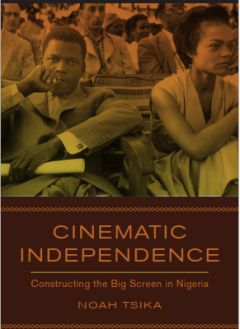
Cinematic Independence; Constructing the Big Screen in Nigeria
Cinematic Independence traces the emergence, demise, and rebirth of big-screen film exhibition in Nigeria. Film companies flocked to Nigeria in the years following
- Edition
- -
- ISBN/ISSN
- 9780520386105
- Collation
- -
- Series Title
- -
- Call Number
- 791.43 TSI c
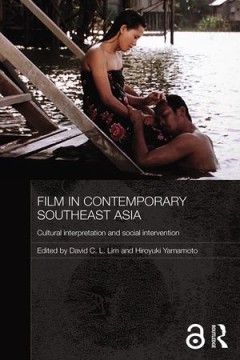
Film in Contemporary Southeast Asia: Cultural Interpretation and Social Inter…
This book discusses contemporary film in all the main countries of Southeast Asia, and the social practices and ideologies which films either represent or oppose. It shows how film acquires signification through cultural interpretation, and how film also serves as a site of contestations between social and political agents seeking to promote, challenge, or erase certain meanings, messages or id…
- Edition
- -
- ISBN/ISSN
- 9781136592478
- Collation
- -
- Series Title
- -
- Call Number
- 791.43 FIL f
 Computer Science, Information & General Works
Computer Science, Information & General Works  Philosophy & Psychology
Philosophy & Psychology  Religion
Religion  Social Sciences
Social Sciences  Language
Language  Pure Science
Pure Science  Applied Sciences
Applied Sciences  Art & Recreation
Art & Recreation  Literature
Literature  History & Geography
History & Geography